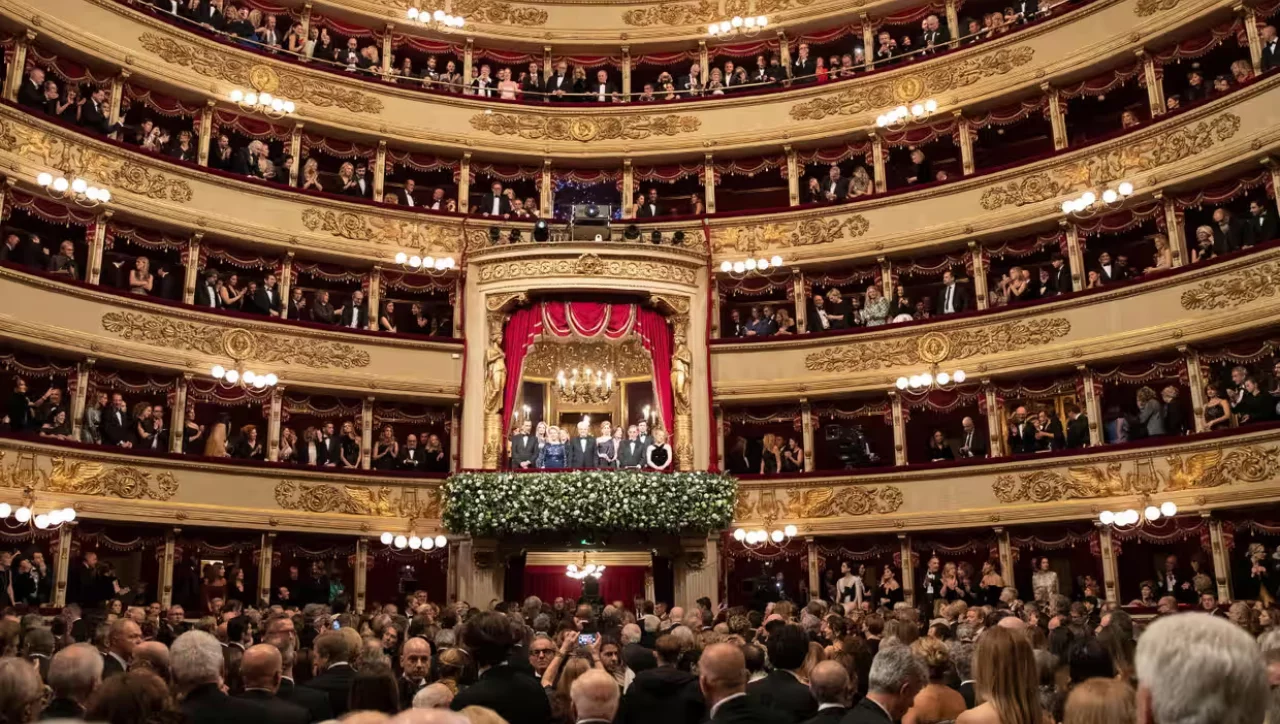No place for swimwear at La Scala - official statement

The famous La Scala opera theatre, located in Milan, Italy—a global and prestigious cultural venue—has once again strictly reminded its audience of new, or rather traditional, rules. The management warned opera-goers not to arrive wearing short shorts, tank tops, or flip‑flops—attire suitable for the beach.
This measure has been supported by many, since displaying respect for a high‑level cultural event like opera—especially by adhering to a dress code—is considered natural.
A special “code of conduct” sign is posted at the theatre entrance, stating:
“Choose clothing befitting the decorum of the theatre. Spectators wearing tank tops, short shorts, and flip‑flops are not allowed.” It also clearly notes that ticket money will not be refunded to those who violate the rules.
The message also appears on tickets and on La Scala’s official website. The rule was first introduced in 2015, when Milan hosted the World Expo. That year, La Scala remained open all summer, and there was a noticeable increase in audiences in beachwear.
Although the rule has been in effect since 2015, strict enforcement has only been implemented recently. Among the reasons was the softer approach to dress standards encouraged by former director Dominique Meyer, who defended attire choices when criticized in Paris for his “worker’s look.”
Now, with the continuing heat and the packed seating, the rules are enforced more strictly. A La Scala representative said:
“We have observed discontent among some spectators: for example, flip‑flops cause significant discomfort.”
It is noted that the rule does not prohibit women from wearing dresses or decorated sleeveless blouses. Additionally, Corriere della Sera reports that traditional Japanese kimonos and appropriate footwear are not considered flip‑flops and are permitted.
Before 2015, tickets recommended “suit and tie,” although it was not mandatory. Today, at a minimum, “neat and respectable attire” is expected.
In addition to the dress code, new rules also cover general behaviour in the theatre. From now on, the following are strictly prohibited:
Bringing food and drinks inside,
photographing or filming during the performance,
placing mobile phones on balcony rails, because a phone once fell and hit a spectator below.
Through these updates, La Scala aims to preserve not only art but also cultural etiquette and ethics. Theatre staff emphasize that these rules are not meant to disadvantage anyone, but to create a comfortable and dignified environment for all.
Now, those planning to attend an opera in Milan should consider not only convenience but also cultural and aesthetic norms. After all, in a cultural centre, cultural attire is also part of culture.
Read “Zamin” on Telegram!
Ctrl
Enter
Found a mistake?
Select the phrase and press Ctrl+Enter 





















